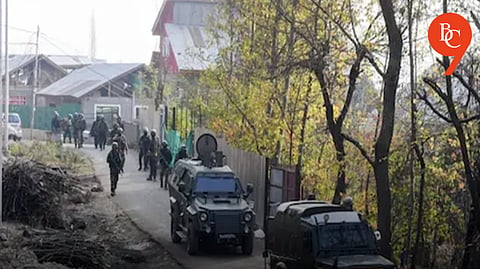

Security in the national capital Delhi has been significantly beefed up following the devastating terrorist attack in Pahalgam, Jammu and Kashmir, which claimed 28 lives, including tourists and security personnel. This escalation in security measures reflects the government’s urgent response to the growing threat of terrorism and the pressing need to safeguard the heart of India’s democracy amid heightened tensions.
The attack, carried out by militants from the Pakistan-based group The Resistance Front, has sent shockwaves across the country, raising serious questions about national security and the government’s preparedness. In Delhi, authorities have intensified deployment of police forces, paramilitary units, and intelligence surveillance, especially in sensitive areas such as central and east Delhi, diplomatic zones, and major public venues. This move coincides with high-profile visits, including that of US Vice President JD Vance, whose security arrangements have been tightened to unprecedented levels, highlighting the government’s commitment to maintaining law and order during turbulent times.
The government’s multi-pronged strategy includes rigorous mock drills, advanced security liaisoning at key locations like the Akshardham Temple, and strict traffic management to ensure smooth and secure movement of dignitaries and citizens alike. These measures demonstrate a proactive approach to preempt any potential threats and reassure the public of their safety.
However, the question looms large: where is the nation heading amid these recurring terror attacks and rising security anxieties? Experts warn that India is at a critical juncture where internal security challenges are intensifying, fueled by cross-border terrorism and domestic unrest. The government’s response, while swift, must evolve into a comprehensive long-term strategy that combines enhanced intelligence gathering, community engagement, and diplomatic efforts to dismantle terror networks.
Prime Minister Narendra Modi’s decision to cut short his Saudi Arabia visit and return to India immediately after the Pahalgam attack underscores the gravity of the situation and the administration’s resolve to tackle terrorism head-on. Union Home Minister Amit Shah’s presence in Srinagar to oversee security operations further signals a no-compromise stance against militants. Yet, critics argue that despite heightened security protocols, lapses continue to occur, calling for greater accountability and modernization of security infrastructure.
Public sentiment is a mix of fear and resilience. While citizens appreciate the government’s intensified security measures, there is growing demand for transparency and effective action that goes beyond reactive policing. The recent attack has also sparked debates on the need for better coordination between central and state agencies, improved border management, and addressing the root causes of radicalization.
